Citizen science and genetic testing yield positive results
Since I started working as a geneticist in the early 1960s, the field has changed…
Since I started working as a geneticist in the early 1960s, the field has changed…
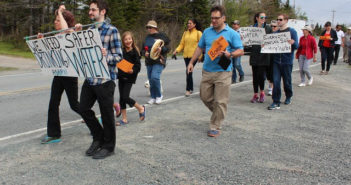
The Nova Scotia Supreme Court has confirmed that polluters must clean up a contaminated site in Harrietsfield, N.S., that has left many residents without access to clean, safe drinking water of an acceptable quality for nearly a decade.

Nova Scotia Supreme Court says polluters must clean up a site that left water contaminated.…
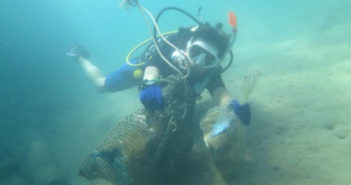
Indonesia’s Coordinating Minister for Maritime Affairs, Luhat Binsar Pandjaitan, has announced up to one billion dollars will be pledged to reduce Indonesia’s plastic waste by seventy per cent over the next eight years. The announcement was made at the 2017 World Oceans Summit in Nusa Dua, Bali. Luhat confirmed that Indonesia will be focussing on plastic alternatives and education initiatives to achieve their goal. Their plan is part of the global UN Clean Seas campaign to reduce major marine waste sources by 2022.
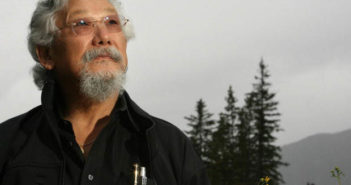
In 2011, I travelled with my family down Yukon’s Hart River. It’s one of seven pure rivers in the Peel River watershed, a 68,000-square-kilometre wilderness that’s been at the centre of a legal dispute for many years and a land-use planning debate for more than a decade. For two weeks, we fished from the river’s vibrant green waters and gazed at the limestone and dolostone peaks of the Ogilvie Mountains.
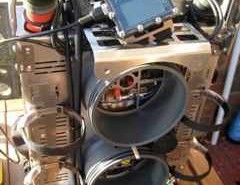
In 2011, I travelled with my family down Yukon’s Hart River. It’s one of seven…
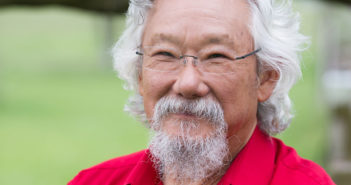
Apparently, fossil fuel companies protect watersheds and rivers by removing oil. That’s according to comments on the David Suzuki Foundation Facebook page and elsewhere, including this: “The amount of contamination occuring [sic] from extraction is far less than if we just left the oil there to continue polluting the waterways.”
Apparently, fossil fuel companies protect watersheds and rivers by removing oil. That’s according to comments…

We all know just how important the ocean is and how vital is that we help to support and maintain it as a resource and eco system but some individuals spend time and energy taking that to the next level to promote it locally and to instigate action. We meet Jim Cutting, a Portsmouth resident who has a passion for the environment and for its protection.
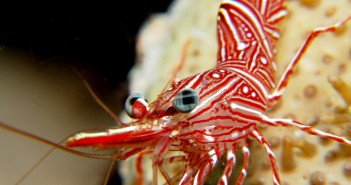
We all know just how important the ocean is and how vital is that we…
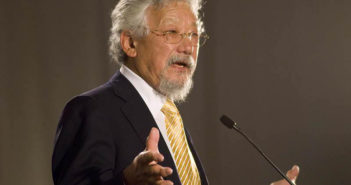
The battle lines are drawn — in some cases literally. On one side are those reaping massive profits from fossil fuels, determined to extract and sell as much as possible before the market dries up. On the other are those who see the amazing potential of energy conservation, renewable energy and other innovations to reduce pollution, greenhouse gas emissions, ecosystem destruction and exploitation of valuable non-renewable resources.
The battle lines are drawn — in some cases literally. On one side are those…
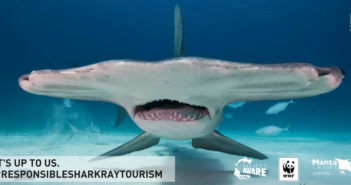
This World Wildlife Day, March 3, Project AWARE®, WWF and The Manta Trust are pleased…

Neskantaga First Nation in Ontario has had to boil water since 1995. “We’re over 20 years already where our people haven’t been able to get the water they need to drink from their taps or to bathe themselves without getting any rashes,” Neskantaga Chief Wayne Moonias told CBC News in 2015. Their water issues have yet to be resolved.

Neskantaga First Nation in Ontario has had to boil water since 1995. “We’re over 20…
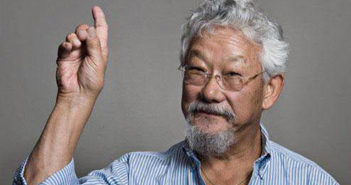
Seeing terms like “post-truth” and “alternative facts” gain traction in the news convinces me that politicians, media workers and readers could benefit from a refresher course in how science helps us understand the world. Reporting on science is difficult at the best of times. Trying to communicate complex ideas and distil entire studies into eye-catching headlines and brief stories can open the door to misinformation and limited understanding.
Seeing terms like “post-truth” and “alternative facts” gain traction in the news convinces me that…
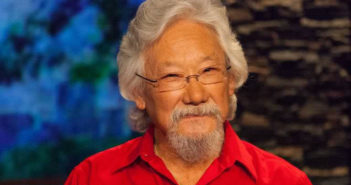
In the 1990s, the David Suzuki Foundation embarked on a program to develop community economic projects with coastal First Nations. Between 1998 and 2003, my wife and foundation co-founder, Tara Cullis, established relationships with 11 coastal communities from the tip of Vancouver Island to Haida Gwaii and Alaska, visiting each several times.

In the 1990s, the David Suzuki Foundation embarked on a program to develop community economic…

Imagine beaches that are free from rubbish, healthy rivers that we can swim in, and people everywhere who are inspired to look after the places we love. This is the vision of non-profit group Sustainable Coastlines. The charity recently launched a crowd-funding campaign to help complete The Flagship Education Centre – a unique and ambitious re-locatable building planned for Auckland’s Wynyard Quarter, and they need your help.
Imagine beaches that are free from rubbish, healthy rivers that we can swim in, and…
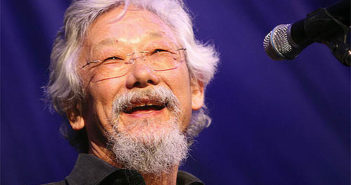
Clean air, water and soil to grow food are necessities of life. So are diverse plant and animal populations. But as the human population continues to increase, animal numbers are falling. There’s a strong correlation. A comprehensive report from the World Wildlife Federation and the Zoological Society of London found that wild animal populations dropped by 58 per cent between 1970 and 2012, and will likely reach a 67 per cent drop by 2020 if nothing is done to prevent the decline.

Clean air, water and soil to grow food are necessities of life. So are diverse…
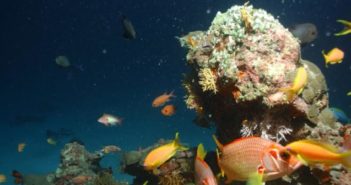
Love Reefs? Want to put your diving skills to good use? Try this Reef Check diving expedition with a difference…..

Love Reefs? Want to put your diving skills to good use? Try this Reef Check…
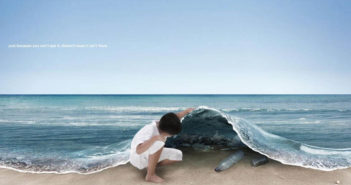
Something can always be done to help prepare for marine events such as oil spills and coral and if we don’t put efforts in during our lifetime, the current state will not be any better for the next generations to come. We know that all journeys begin with a single step and it has to start somewhere, so at The World Federation for Coral Reef Conservation we work to ensure our actions will see results within years not lifetimes.

Something can always be done to help prepare for marine events such as oil spills…
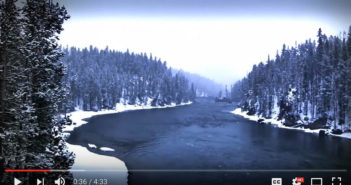
Humans are the world’s top predator. The way we fulfil this role is often mired in controversy, from factory farming to trophy hunting to predator control. The latter is the process governments use to kill carnivores like wolves, coyotes and cougars to stop them from hunting threatened species like caribou — even though human activity is the root cause of caribou’s decline.
Humans are the world’s top predator. The way we fulfil this role is often mired…

It’s been shocking to watch news of the Brexit vote in Britain, Donald Trump’s promise to build a wall between Mexico and the U.S. and the ongoing threats and violence against ethnic minorities in many parts of the world. I’m not a political or social scientist, but my training as a biologist gives me some insight.
It’s been shocking to watch news of the Brexit vote in Britain, Donald Trump’s promise…
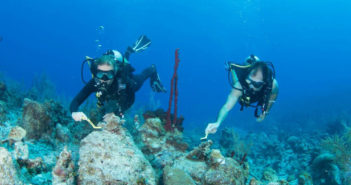
Heavy work completed for Magic Reef Restoration Project; Maintenance Continues to give coral best chance…
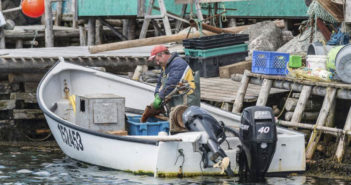
We’re excited to announce the launch of a new report on the state of Canada’s fisheries, called Here’s the Catch: How to Restore Abundance to Canada’s Oceans.
We’re excited to announce the launch of a new report on the state of Canada’s…

We made it! Thanks to all of your help, we surpassed our goal of raising $25,000 in online gifts this month! These gifts were matched dollar-for-dollar by a generous supporter, meaning we’ve raised more than $50,000 to support our fight for a brighter environmental future.
We made it! Thanks to all of your help, we surpassed our goal of raising…
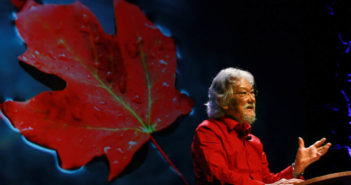
Over the past half century, the world has moved increasingly to industrial agriculture — attempting to maximize efficiency through massive, often inhumane livestock operations; turning huge swaths of land over to monocrops requiring liberal use of fertilizers, pesticides and genetic modification; and reliance on fossil fuel-consuming machinery and underpaid migrant workers. This has contributed to increased greenhouse gas emissions; loss of forests and wetlands that prevent climate change by storing carbon; pollution from runoff and pesticides; antibiotic and pesticide resistance; reduced biodiversity; and soil degradation, erosion and loss.
Over the past half century, the world has moved increasingly to industrial agriculture — attempting…
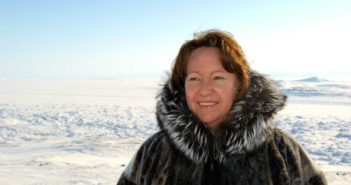
Speaking at WWF-Canada’s Ocean Summit held in Ottawa last week, longtime Inuit activist and former president of the Inuit Circumpolar Council Sheila Watt-Cloutier argued that the fate of the Arctic transcends the political, economic and scientific spheres, and should be fought at the legal level, with the language of human rights.
Speaking at WWF-Canada’s Ocean Summit held in Ottawa last week, longtime Inuit activist and former…

Palau has become the latest Pacific country to join a regional conservation initiative to protect…
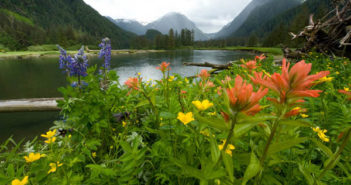
Ecojustice issued the following statement about the federal government’s plans for reviewing Canada’s environmental laws to restore credibility to the environmental assessment process:
OTTAWA — Ecojustice issued the following statement about the federal government’s plans for reviewing Canada’s…
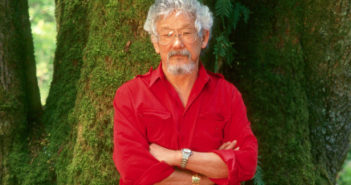
First-time visitors to Australia are often drawn to the big city attractions of Sydney and Melbourne or the fabulous beaches of Queensland’s Gold Coast. I’ve always had a soft spot for Adelaide in South Australia, a city built more on a human scale, where downtown can be easily navigated on bike, foot or tram. For me, Adelaide’s greatest attraction is a huge market right in the city’s center.

First-time visitors to Australia are often drawn to the big city attractions of Sydney and…
